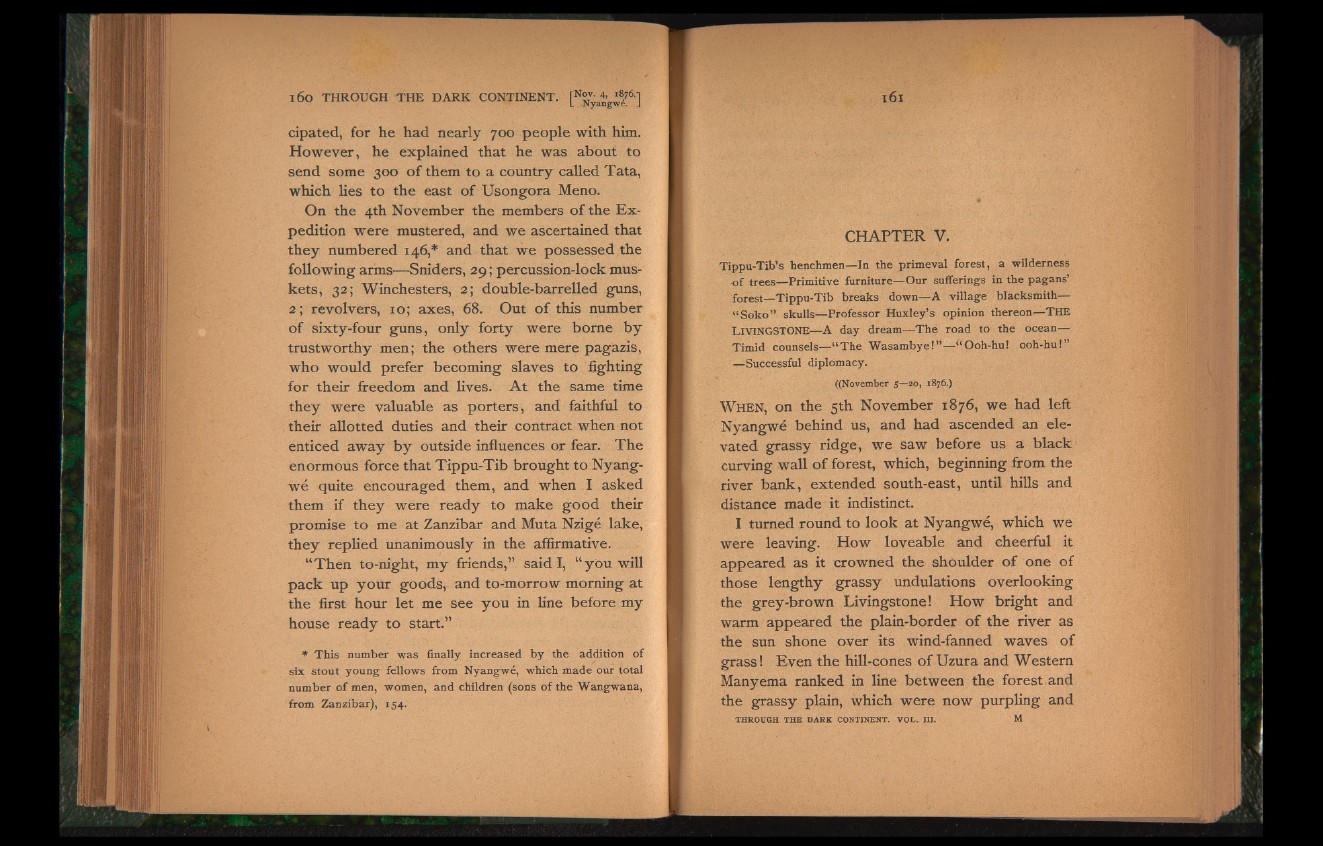
cipated, for he had nearly 700 people with him.
However, he explained that he was about to
send some 300 of them to a country called Tata,
which lies to the east of Usongora Meno.
On the 4th November the members of the Expedition
were mustered, and we ascertained that
they numbered 146,* and that we possessed the
following arms— Sniders, 29; percussion-lock muskets,
32; Winchesters, 2; double-barrelled guns,
2; revolvers, 10; axes, 68. Out of this number
of sixty-four guns, only forty were borne by
trustworthy men; the others were mere pagazis,
who would prefer becoming slaves to fighting
for their freedom and lives. At the same time
they were valuable as porters, and faithful to
their allotted duties and their contract when not
enticed away by outside influences or fear. The
enormous force that Tippu-Tib brought to Nyangwe
quite encouraged them, and when I asked
them if they were ready to make good their
promise to me at Zanzibar and Muta Nzige lake,
they replied unanimously in the affirmative.
“ Then to-night, my friends,” said I, “ you will
pack up your goods, and to-morrow morning at
the first hour let me see you in line before my
house ready to start.”
* This number was finally increased by the addition o f
six stout young fellows from Nyangwe, which made our total
number of men, women, and children (sons o f the Wangwana,
from Zanzibar), 154.
CHAPTER V.
Tippu-Tib’s henchmen— In the primeval forest, a wilderness
■of trees— Primitive furniture— Our sufferings in the pagans’
forest— Tippu-Tib breaks down— A village blacksmith—
“ S o k o ” skulls— Professor Huxley’s opinion thereon— THE
LIVINGSTONE— A day dream— The road to the ocean—
Timid counsels— “ The Wasambye!” — “ Ooh-hu! ooh-hu!”
— Successful diplomacy.
((November 5—20, 1876.)
W h e n , on the 5th November 1876, we had left
Nyangwe behind us, and had ascended an elevated
grassy ridge, we saw before us a black
curving wall of forest, which, beginning from the
river bank, extended south-east, until hills and
distance made it indistinct.
I turned round to look at Nyangwe, which we
were leaving. How loveable and cheerful it
appeared as it crowned the shoulder of one of
those lengthy grassy undulations overlooking
the grey-brown Livingstone! How bright and
warm appeared the plain-border of the river as
the sun shone over its wind-fanned waves of
grass! Even the hill-cones of Uzura and Western
Manyema ranked in line between the forest and
the grassy plain, which were now purpling and
THROUGH THE DARK CONTINENT. VOL . III. M